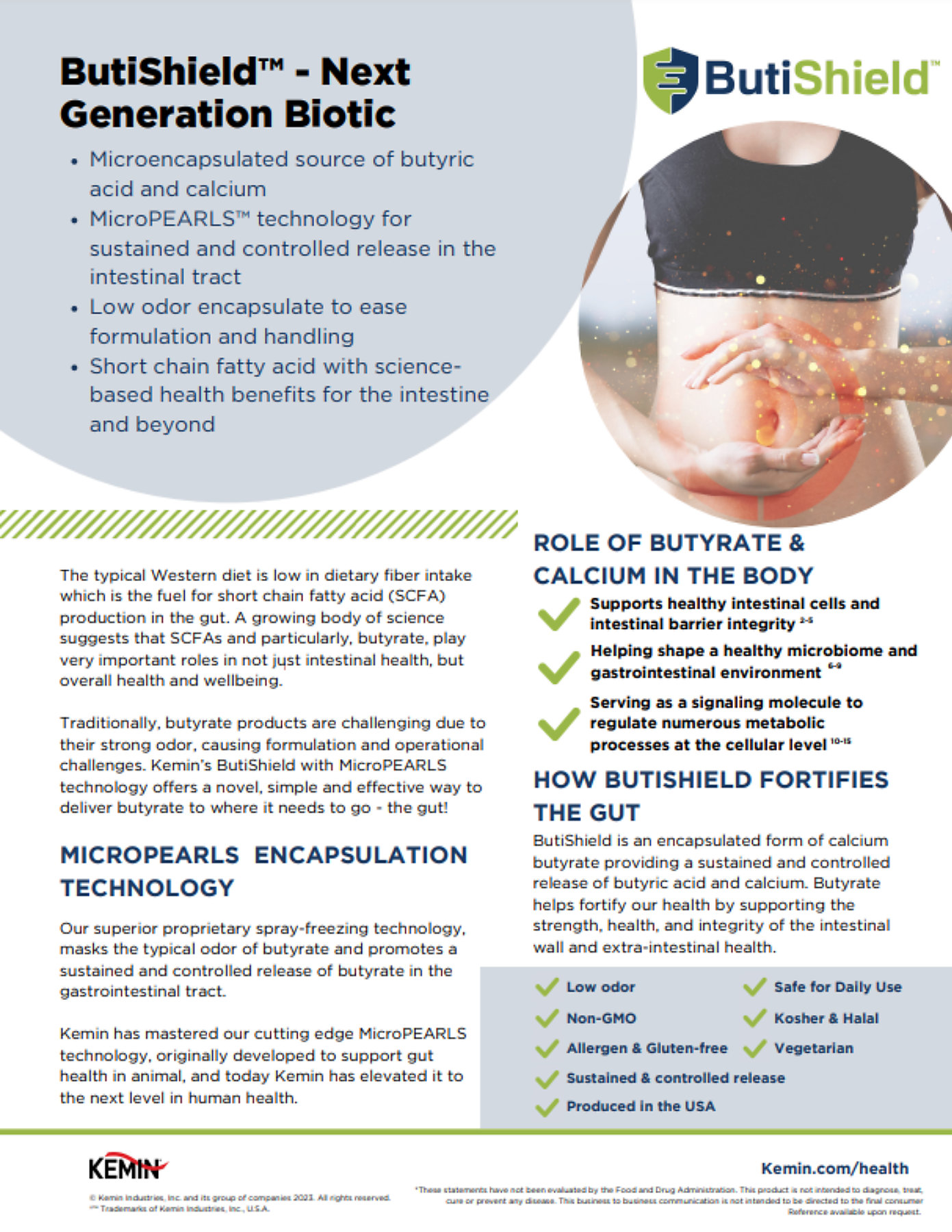In the pursuit of optimal health, consumers are increasingly recognizing the profound interconnection between the immune and gastrointestinal (GI) systems. Acknowledging this symbiotic relationship is crucial for formulating comprehensive health solutions. A staggering 79% of consumers worldwide understand the link between immune and GI health1, highlighting the demand for multifunctional products that address overall well-being. Additionally, approximately 40% of individuals regularly wrestle with GI health issues2, emphasizing the importance of a holistic approach to health.2
The Gut-Immune Connection
Contrary to the perception of the immune and digestive systems as competitors, they collaboratively contribute to overall well-being. The digestive system plays a pivotal role by absorbing essential nutrients required for immune function. A well-nourished body is better equipped to mount an effective immune response. Notably, the gut houses a significant portion of the body's immune cells, actively participating in immune surveillance and response. The gut microbiota, comprising bacteria, fungi, and viruses, modulates immune responses within the gut, establishing a bidirectional communication crucial for immune homeostasis.3 Astonishingly, around 70% of the entire immune system is located around the gut.4
The Intestinal Barrier
The intestines serve as a vital interface between our bodies and the external environment. The intestinal barrier, comprised of tight junctions, regulates the passage of substances, preventing harmful elements from entering tissues.5 Disruption of this barrier can lead to increased permeability, allowing the entrance of undesirable things like food particles, bacteria, and toxins.6,7
Factors Affecting Gut Permeability
Several lifestyle factors, including aging8, diet, sleep, and stress, contribute to reshaping the composition of gut bacteria.9 Western diets, particularly those low in fiber, negatively impact intestinal permeability.9
The Benefits of Good Gut Health
Investing in gut health yields far-reaching benefits, extending beyond the gut itself. Enhancing intestinal barrier function leads to improved immune response, nutrient absorption, and decreased susceptibility to adverse conditions.10,11,12
Supporting Gut Health
Maintaining a balance between gut and immune health is essential for overall well-being. Consumers can adopt various everyday practices, including:
- Eating a balanced diet rich in fiber.13
- Staying hydrated.14
- Managing stress.15
- Getting enough sleep.16
- Regular exercise.17
- Supplementation.18
Formulate for the Gut-Immune Connection
Kemin offers science-backed ingredients designed to support both gut and immune health, catering to the specific needs of supplement manufacturers.
- BetaVia™: Algae-source beta 1,3 glucans that prime key immune cells, shape the microbiome, and protect intestinal barrier integrity.19-23
- ButiShield™: An encapsulated form of calcium butyrate providing a controlled release of butyric acid to support gut health.24-27
Conclusion
Understanding the intricate relationship between the gut and immune system is pivotal in the quest for better health. Kemin, a reliable partner in health and nutrition, offers cutting-edge solutions to support both gut and immune health. By incorporating these science-backed ingredients, supplement manufacturers can develop products that cater to the evolving needs of health-conscious consumers worldwide.
Explore how Kemin Human Nutrition & Health can enhance your gut or immune health product at kemin.com. Partner with us to create formulations that contribute to the holistic well-being of individuals globally.



